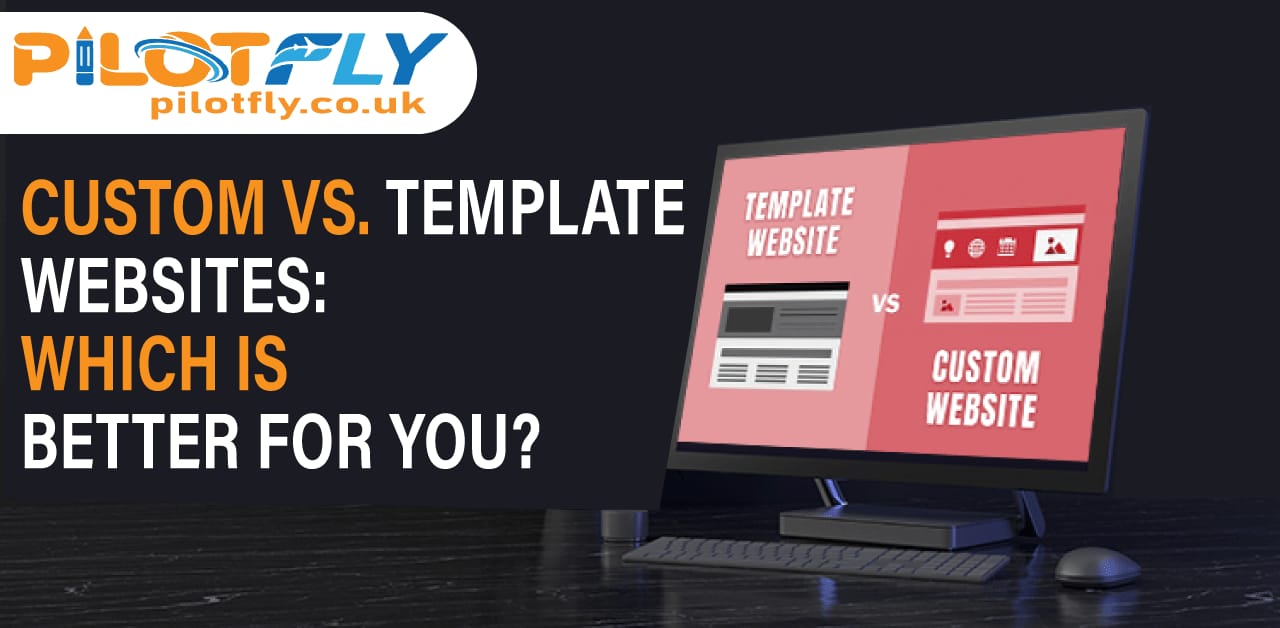Subtotal £0.00
Custom vs. Template Websites: Which Is Better for You?
In today’s digital world, your website is the first impression most customers will have of your brand. That’s why choosing the right type of website—custom or template-based—is an important decision for any business or individual. If you’re wondering which option is better for you, this guide will help you make the right choice based on your goals, budget, and growth plans.
What Is a Custom Website?
A custom website is built from the ground up. This means web developers and designers work together to create a site that is tailored to your specific needs, brand identity, and business goals. Everything from layout and colors to features and functionality is created according to your vision.
Unlike ready-made templates, custom websites don’t follow a one-size-fits-all approach. You get complete control over design, user experience, and technical performance. Whether you’re launching a large-scale eCommerce store or a company website that needs complex features, a custom website is designed to grow with you.
Advantages of a Custom Website
There are several benefits to investing in a custom website:
- Unique Design: Your website will stand out with a look and feel that reflects your brand’s personality.
- Scalability: As your business grows, your website can evolve with it—new features can be added without limits.
- Performance: Custom websites are built with clean code, which often means faster loading times and better overall performance.
- Security: Developers can implement strong security practices tailored to your business needs.
- SEO Optimization: With better structure and coding practices, a custom website gives you a stronger foundation for search engine visibility.
Disadvantages of a Custom Website
- Higher Cost: Custom development is more expensive because it involves more time, planning, and professional skills.
- Longer Development Time: It can take weeks or even months to launch, especially for complex projects.
- Requires Technical Team: Ongoing changes or updates often need developer support.
- Complex Process: Planning, testing, and revisions take more effort than using a ready-made design.
What Is a Template Website?
A template website is built using pre-designed layouts and themes available on platforms like WordPress, Wix, or Shopify. Instead of building from scratch, you choose a template that fits your style, then add your content, images, and branding elements.
Template websites are perfect for small businesses, personal blogs, or startups who want to get online quickly without the cost of custom development. They allow users with no coding experience to create functional and attractive websites in a short amount of time.
Advantages of a Template Website
Template websites come with several useful features:
- Quick Setup: You can build and launch a website within hours.
- Budget-Friendly: It’s much cheaper than custom development.
- No Coding Needed: Most templates allow drag-and-drop editing, making it easy for beginners.
- Design Variety: Thousands of free and paid templates are available, covering nearly every niche and industry.
- Maintenance Made Easy: Platforms like Wix and Shopify offer built-in tools for updates and hosting.
Disadvantages of a Template Website
- Limited Customization: You’re restricted to what the template allows.
- Less Unique: Other websites may be using the exact same design.
- Performance Issues: Some templates are bloated with unnecessary features that slow down your site.
- SEO Limitations: Some builders may not offer full control over SEO settings.
- Scalability Challenges: As your needs grow, you may find the template cannot keep up.
Which Website Type Should You Choose?
The best choice depends on your needs.
If your goal is to build a professional, unique, and scalable website that stands out and offers complete flexibility, a custom website is the way to go.
If you want a quick, cost-effective solution to get your business online with fewer custom features, a template website is a great starting point.
For many businesses, starting with a template and later upgrading to a custom design as the business grows is also a smart strategy.
Conclusion
Both custom and template websites have their place in the digital space. The right choice depends on your budget, timeline, and how personalized your website needs to be.

